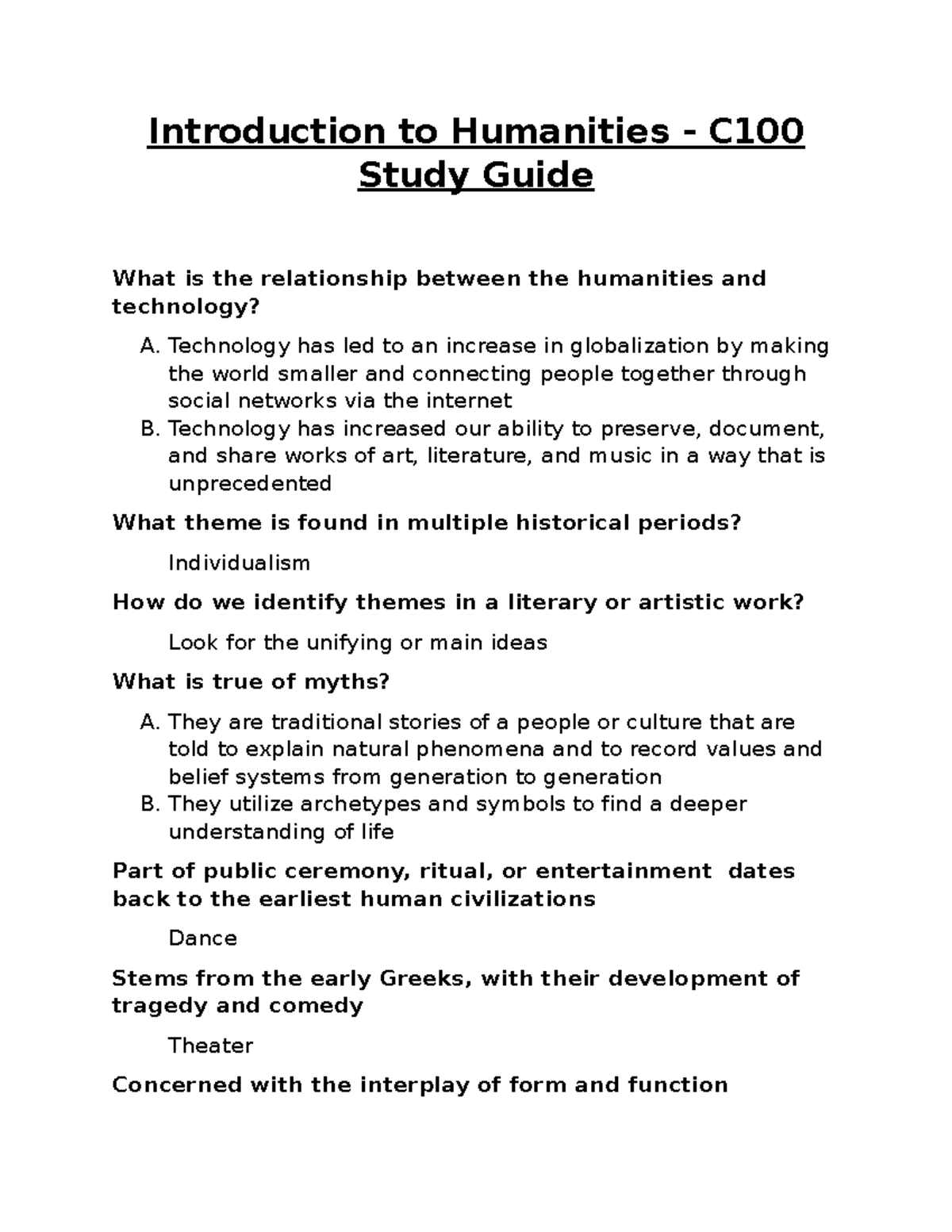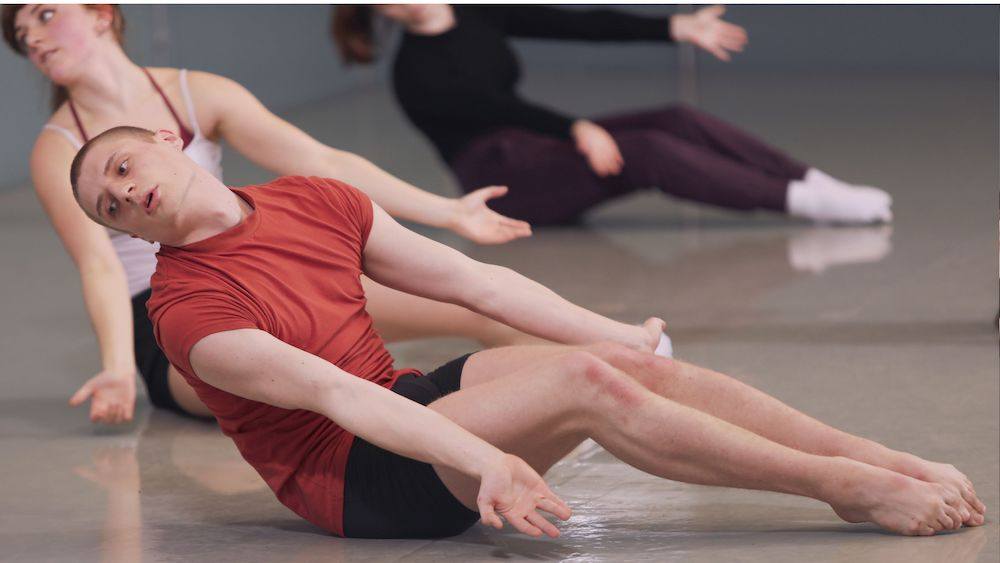Introductory humanities courses serve as a crucial gateway for students eager to explore the rich tapestry of arts and humanities at university level. At institutions like Harvard, these foundational classes spark curiosity and engagement, challenging first-year students to delve into profound questions about culture, philosophy, and the human experience. Recognizing a trend of declining enrollment in these fields, educators are rethinking their approach to create more enticing and relevant course offerings. With a fresh set of nine courses launching this year, the intention is to invigorate interest and showcase the intrinsic value of humanities education. By bridging classic and contemporary themes, these courses aim to not only attract students but also transform how they perceive the world around them, ensuring they remain connected to the essence of human inquiry and creativity.
Engaging in entry-level courses within the realm of the humanities provides a foundational understanding of cultural studies and critical thinking. These university course offerings introduce students to a diverse array of subjects, allowing them to explore literature, art, and philosophy through contemporary lenses. As institutions evolve, they seek to captivate a new generation by offering innovative curriculum designs that reflect the relevance of the humanities in today’s society. By fostering an environment where critical engagement is encouraged, budding scholars can appreciate the complexities of human expression and experience. As a result, these introductory courses become not only a platform for academic growth but also a means to connect with the broader narratives that define our existence.
Engaging First-Year Students in Humanities Education
The introduction of nine new introductory humanities courses at Harvard aims to engage first-year students in the often-overlooked arts and humanities fields. Dean Sean Kelly highlights an alarming trend where a significant percentage of first-year students who initially express interest in these disciplines end up shifting their focus by the time they declare their concentrations. By introducing innovative courses that resonate with students’ interests and cultural experiences, the university hopes to reverse this trend and rekindle passion for the humanities.
These courses not only offer new content but are crafted to be accessible and appealing to students from diverse academic backgrounds. The initiative emphasizes the intrinsic value of the humanities, promoting a deeper understanding of human thought, creativity, and emotional connection. As such, the courses serve as a gateway for students to explore their interests further, setting a foundation for a holistic education that extends beyond mere career preparation.
The Role of Introductory Humanities Courses in University Offerings
Introductory humanities courses play a crucial role in university course offerings, serving as a vital bridge for students entering the expansive world of arts and culture. These foundational classes are essential for helping students discover their academic passions and understand the broader implications of their studies. At Harvard, the new courses encompass a variety of themes, including medical humanities, migration narratives in film, and the intersection of technology and humanity. These topics are designed to engage students and draw connections to contemporary societal issues.
By thoughtfully curating the curriculum, Harvard’s Division of Arts and Humanities aims to enhance the general humanities education experience. The focus on engaging and relevant content encourages critical thinking and fosters a deeper appreciation for the complexities of human existence, which may ultimately inspire students to pursue further studies in these vital fields. By prioritizing student engagement, these courses are not just about fulfilling requirements but about enriching the academic journey of every student.
The Importance of Engaging Humanities in Higher Education
As interest in the arts and humanities continues to fluctuate, it is imperative for educational institutions to actively promote engaging humanities courses that resonate with today’s students. By aligning course content with social and cultural themes, universities can demonstrate the relevance and applicability of the humanities in various aspects of life. The new initiatives at Harvard serve as a case study in reimagining how humanities education can inspire students and sustain their enthusiasm for learning.
Programs designed to engage students through interaction with critical texts and concepts foster an environment where learners can explore their identities and the human condition. By treating subjects such as literature, philosophy, and history as vital components of understanding contemporary challenges, these courses create a necessary dialogue between traditional knowledge and modern-day inquiries. This approach not only enhances students’ academic experiences but also equips them with the skills needed to navigate the complexities of a rapidly changing world.
Initiatives to Counter the Decline in Humanities Enrollment
In response to the declining enrollment trends in the humanities, educational leaders like Dean Sean Kelly are spearheading initiatives aimed at rejuvenating interest in these disciplines. By transforming the structure and content of introductory humanities courses, institutions can create more engaging and appealing pathways for students. This strategic shift is essential not only for universities but for preserving the relevance of the humanities in a technology-driven society.
With a focus on interaction, collaboration, and contemporary topics, these initiatives aim to reshape the perception of the humanities as foundational rather than peripheral to higher learning. By investing in the redesign of humanities education, universities like Harvard can pave the way for students to appreciate the arts and humanities not just as academic fields, but as integral components of understanding our world and future.
Curriculum Innovations in Arts and Humanities
Curriculum innovations in the arts and humanities are essential for cultivating a thriving academic environment where students feel connected to their studies. At Harvard, the introduction of new courses reflects a significant shift towards courses that encourage engagement through innovative teaching and relevant themes. By integrating modern societal issues with traditional humanities scholarship, these courses attract a diverse body of students and stimulate meaningful dialogue.
Furthermore, professors are encouraged to draw from a wide variety of texts and media, creating a more inclusive approach that appeals to different learning styles and backgrounds. By embracing such curriculum innovations, universities effectively cultivate a dynamic learning atmosphere where students can develop critical thinking skills and foster a lifelong appreciation for the humanities as vital to personal and societal growth.
Exploring Interdisciplinary Approaches in Humanities
Interdisciplinary approaches in the humanities facilitate a richer, more comprehensive understanding of complex cultural phenomena. Courses that blend various disciplines—such as literature, philosophy, and the arts—allow students to explore the interconnectedness of human thought and creativity. Harvard’s new courses exemplify this approach by examining themes that transcend traditional boundaries, encouraging students to think critically about the world around them.
These interdisciplinary courses not only engage students with diverse material but also promote collaborative learning environments where different perspectives are valued. By studying how various disciplines inform each other, students gain a more nuanced understanding of humanity’s rich tapestry, ultimately enriching their academic experience and encouraging them to make connections that enhance their analytical capabilities.
Fostering a Culture of Innovation in Humanities Education
Fostering a culture of innovation within humanities education is critical for revitalizing student interest and promoting active learning. At institutions like Harvard, leaders are actively seeking to create a dynamic and flexible curriculum that allows for experimentation and creativity in course design. By embracing new teaching methods and perspectives, educators can create an environment that encourages students to explore the arts and humanities deeply.
Innovative approaches not only invigorate the curriculum but also emphasize the relevance of the humanities in today’s society. Students are increasingly drawn to courses that allow them to engage with contemporary issues through a humanistic lens, making the study of arts and humanities more appealing and pertinent. By championing innovation in humanities education, universities can inspire students to find personal and academic fulfillment.
The Impact of Philosophical Inquiry on Humanities Students
Philosophical inquiry has a profound impact on students’ understanding of the humanities, fostering critical thinking skills and personal reflection. Courses that delve into fundamental philosophical questions offer students tools to engage with complex ideas and enhance their capacity for analysis. At Harvard, such courses have seen significant enrollment, indicating a strong student interest in exploring philosophical concepts as they relate to personal and societal issues.
By integrating philosophical inquiry into the humanities curriculum, educators challenge students to confront their assumptions and engage with differing viewpoints. This intellectual rigor not only broadens students’ analytical capabilities but also nurtures empathy, as they grapple with the nuances of human thought and experience. As a result, philosophical inquiry becomes a cornerstone of a well-rounded humanities education.
Understanding the Value of Storytelling in Humanities
Storytelling is an essential element of the humanities that offers profound insights into the human experience. Through narratives, individuals can convey complex emotions, values, and cultural contexts that resonate across time and space. At institutions like Harvard, courses focused on the art and craft of storytelling foster a deeper appreciation for literature and its role in shaping individual and collective identities.
By examining diverse narratives from various cultures and historical contexts, students uncover the power of storytelling as a form of expression and connection. This exploration not only enhances their critical reading and writing skills but also allows them to appreciate the transformative potential of stories in understanding and navigating the complexities of human existence. Consequently, the value of storytelling becomes a central focus in a modern humanities education.
Frequently Asked Questions
What are introductory humanities courses at Harvard and how do they engage students?
Introductory humanities courses at Harvard are designed to captivate first-year students by exploring fundamental questions about human experience, culture, and creativity. This step aims to counteract declining interest in arts and humanities. The courses, such as ‘Introduction to the Medical and Health Humanities’ and ‘Migration and Border Crossing in Film and Photography,’ aim to reveal the intrinsic value of humanities education, providing a framework for deeper understanding and appreciation of these fields.
Why are introductory humanities courses important for first-year students?
Introductory humanities courses are crucial for first-year students as they offer a grounded understanding of human culture and critical thinking. They help students navigate their interests within the arts and humanities, setting a foundation for potential concentrations. The initiative aims to foster engagement by introducing students to significant themes and texts that resonate with their identities and experiences.
How does Harvard’s initiative aim to counteract declining enrollment in humanities programs?
Harvard’s initiative, led by Dean Sean Kelly, introduces nine new introductory humanities courses that are more engaging and relevant to today’s students. By focusing on appealing content and critical questions, the initiative seeks to inspire first-year students and counteract the trend of declining enrollment in arts and humanities, aiming to maintain their relevance in higher education.
What types of topics are covered in Harvard’s introductory humanities courses?
Harvard’s introductory humanities courses cover a variety of engaging and relevant topics, such as the intersection of health and humanities, the significance of migration narratives in art, and foundational philosophical questions. These themes encourage students to explore human experiences through different lenses, fostering deeper connections to the arts and humanities.
How can introductory humanities courses enhance a student’s critical thinking skills?
Introductory humanities courses enhance critical thinking skills by challenging students to analyze complex texts, engage in philosophical discussions, and explore interpretations of cultural works. Courses like ‘Reading for Fiction Writers’ blend critical analysis with creative practice, enabling students to understand both perspectives and fostering a more holistic approach to thinking and writing.
What is the goal of the new introductory humanities courses introduced at Harvard?
The goal of the new introductory humanities courses at Harvard is to create an inviting and intellectually stimulating learning environment that emphasizes the intrinsic value of arts and humanities. The initiative seeks to engage students deeply, offering them tools to understand and appreciate complex cultural discussions that resonate with their personal experiences.
How do introductory humanities courses relate to students’ future academic paths?
Introductory humanities courses provide a foundational understanding that can inform students’ future academic and career paths. By exploring key concepts and significant works in the humanities, students are better equipped to determine their interests and apply critical thinking skills in various fields, whether they pursue majors within the humanities or other disciplines.
What are some examples of the courses offered in Harvard’s humanities program?
Examples of courses in Harvard’s humanities program include ‘Introduction to the Medical and Health Humanities,’ ‘Bob Dylan the Classic,’ and ‘Humanity, Technology, and Creation.’ Each course is designed to explore different aspects of human culture and critical inquiry, ensuring a diverse and rich experience for students interested in the arts and humanities.
How does Harvard ensure these introductory humanities courses are relevant to today’s students?
Harvard ensures that introductory humanities courses are relevant to today’s students by incorporating contemporary issues, diverse texts, and themes that resonate with current societal challenges. This focus makes the courses more relatable and engaging, aimed at drawing students into the rich exploration of humanities in today’s context.
What impact does humanities education have on students’ overall university experience?
Humanities education enriches students’ overall university experience by equipping them with critical thinking, analytical, and communication skills. It fosters a deeper understanding of cultural contexts, storytelling, and the human condition, preparing students to engage thoughtfully with diverse perspectives and contribute meaningfully to society.
| Key Point | Details |
|---|---|
| New Introductory Courses | Nine new humanities courses launching to engage first-year students. |
| Declining Enrollment | 12% of first-years are interested in humanities, but many switch concentrations. |
| Influences on Curricula | Historical debates (‘Canon Wars’) affected course appeal. |
| Course Motivations | Courses aim to show students the intrinsic value of humanities. |
| Key Courses and Instructors | Courses include ‘Introduction to the Medical and Health Humanities’ and ‘Bob Dylan the Classic’ among others. |
| Understanding Human Culture | Courses delve into philosophical questions, literature, and critical reading. |
| Goal of the Initiative | To cultivate a more engaging humanities culture for new students. |
Summary
Introductory humanities courses play a pivotal role in shaping students’ academic journeys and fostering a deeper understanding of human culture. As seen in the new initiative at Harvard, which introduces innovative courses designed to captivate first-year students, the focus is not only on enhancing enrollment but also on enriching students’ appreciation for the humanities. By creating engaging and relevant content, educators aim to spark curiosity and help students grasp the intrinsic value of arts and humanities. The fresh approach taken by the faculty is a vital step towards ensuring that students recognize the significance of these fields in understanding themselves and the world around them.



